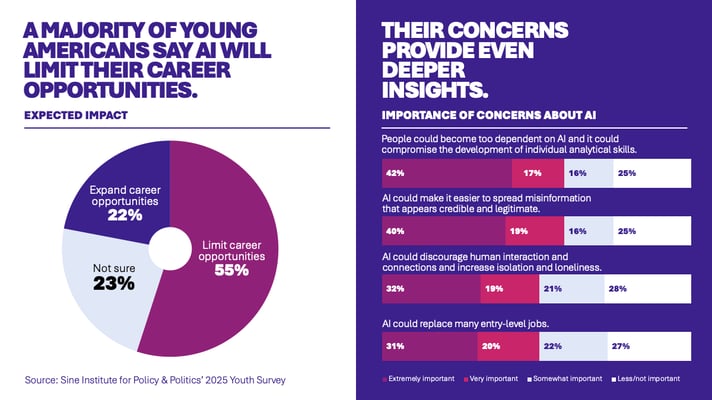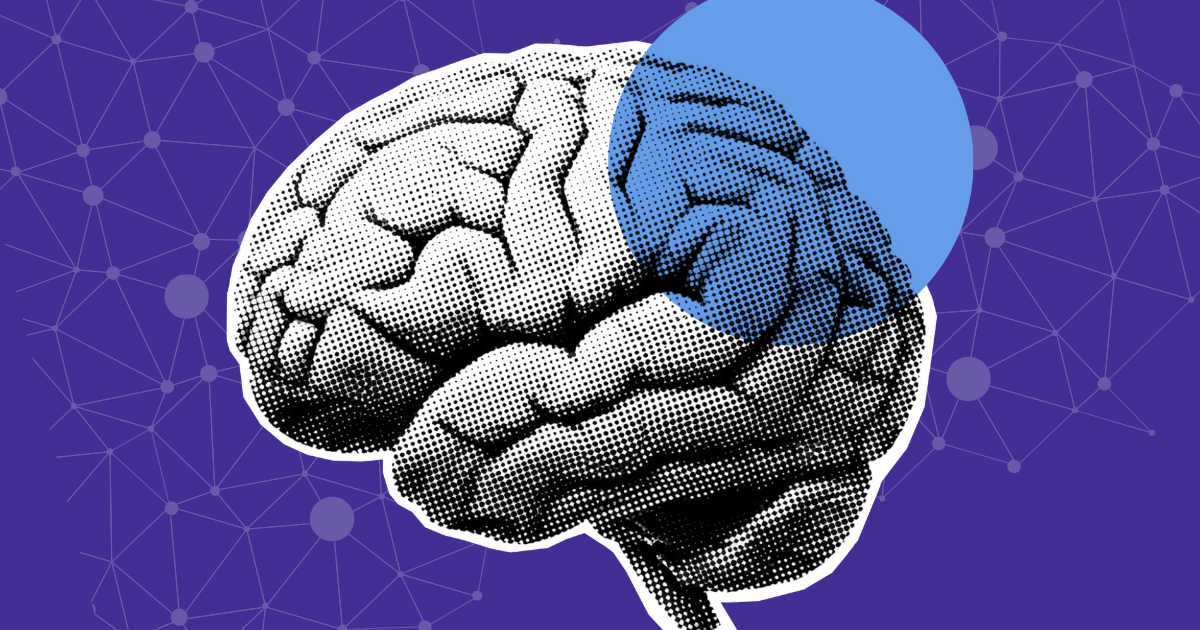
Gwanhoo Lee
Department Chair, Information Technology & Analytics
Director, Institute for Applied Artificial Intelligence
|
|
Key Takeaways
|
|
Artificial intelligence isn’t just a buzzword for young Americans—it’s a defining force shaping how they view their future careers and their expectations of higher education. According to the Sine Institute for Policy & Politics’ 2025 Youth Survey, attitudes toward AI reveal a generation that is both aware of the technology’s potential and deeply concerned about its implications for their professional lives.
Students See AI Skills as Career Preparation—But Few Were Taught
One of the most striking findings is the gap between the importance students place on AI skills and their actual exposure to them. While 72% rate “learning to use AI responsibly” as important for their career and life readiness, more than three-quarters of respondents (78%) say AI received little attention, was discouraged, or even prohibited in their high school experience.
This disconnect underscores a systemic lag between technological innovation and educational adaptation—a lag that risks widening the talent and confidence gap in the AI economy. As a scholar studying AI and teaching students, I see this as a call to action: universities must prepare students not merely to use AI tools, but to understand and lead in a world shaped by them.
Concern and Ambivalence Reflect Career Anxiety

AI evokes mixed emotions among young Americans:
- 48% say they feel an equal mix of excitement and concern about AI.
- 31% feel more anxious or concerned, compared to 21% who feel more positive.
Perhaps most tellingly, 55% believe AI will do more to limit career opportunities than expand them, a sentiment that is particularly pronounced among younger respondents aged 18–24. The challenge for higher education is to turn that anxiety into intellectual empowerment, helping students view AI not as a threat, but as a complement to uniquely human skills and a powerful amplifier of creativity and judgment.
Students Want AI Skills Embedded in College Curricula
When asked what universities should do, students express strong support for institutional action:
- 60% support hiring and training more qualified AI instructors to prepare students for the workplace.
- Nearly half (49%) say they support universities using AI to offer more personalized learning and tutoring.
These data underscore a clear demand: students want to graduate not just aware of AI, but fluent in using it to advance their careers.
Kogod’s Leadership in AI and Business Education
This is precisely where the Kogod School of Business at American University stands out. For years, Kogod has embedded AI and analytics at the core of its curriculum, preparing graduates to lead responsibly in technology-enabled industries.
- Across all degree programs, Kogod students learn to use AI tools ethically and effectively—from automating business processes to enhancing customer insights and sustainability strategies.
- Through experiential learning and partnerships with industry, all students gain hands-on exposure to real-world AI applications, not just theory.
- Kogod offers an AI major, graduate degree, minor, specialization, and badges and certificates—the first business school to offer all five! The Business Analytics and AI minor and badge are especially appealing to non-business school students, providing invaluable skills to bioscience, poli-sci, and communication majors alike.
So What? The Future of AI Readiness in Higher Education
The Sine Institute’s findings reveal an inflection point for higher education. The readiness gap among young Americans is not simply an academic issue—it is a strategic imperative for national competitiveness, workforce resilience, and social equity. This moment calls for bold, transformational leadership in higher education.. At Kogod, we view this transformation as both a responsibility and an opportunity. By integrating AI throughout our curriculum at every level, we are helping students turn anxiety into advantage and uncertainty into agency. Our mission is clear: to ensure that our graduates don’t merely navigate the AI revolution—they lead it.
